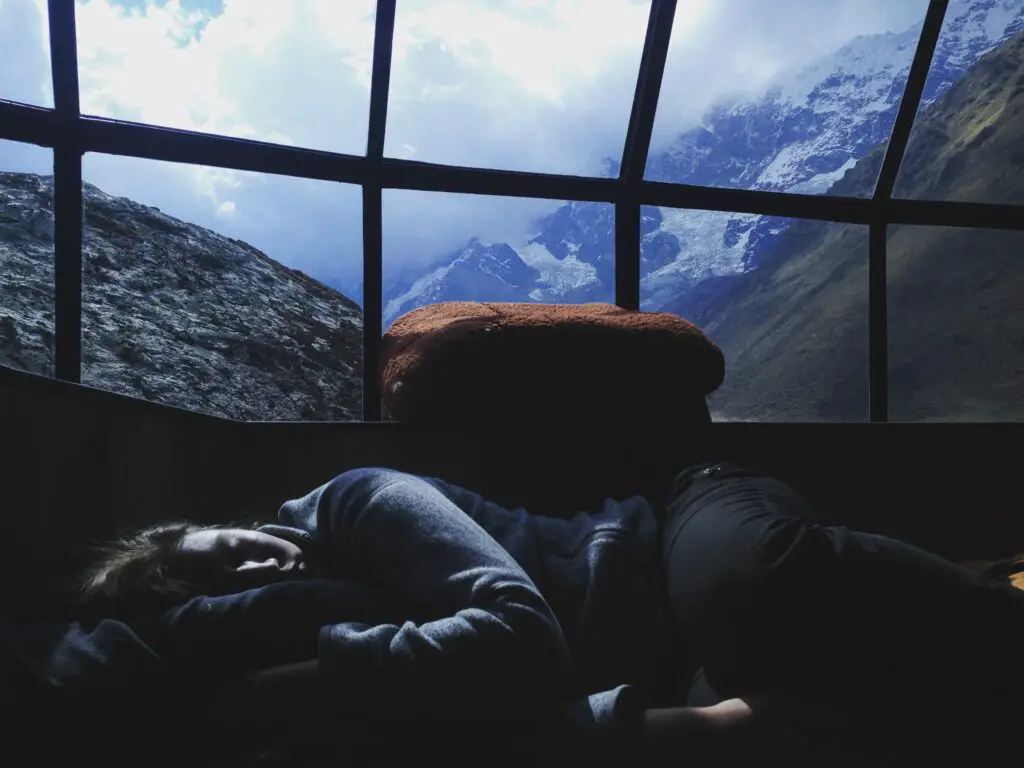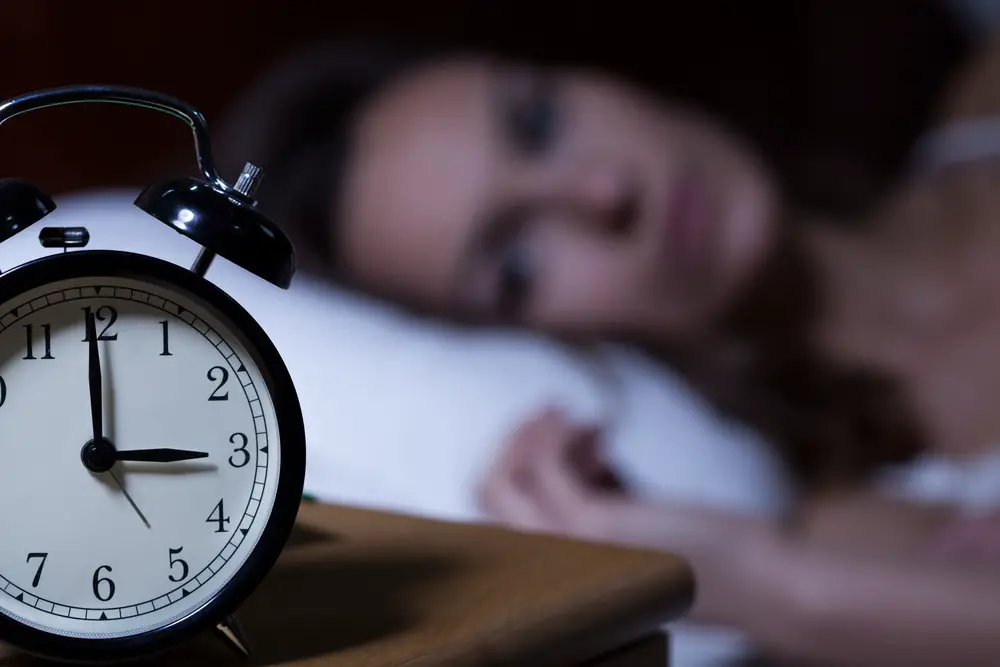As a BetterHelp affiliate, we receive compensation from BetterHelp if you purchase products or services through the links provided
Do you have trouble sleeping at night? You may be experiencing paradoxical insomnia. Paradoxical insomnia is a type of sleep disorder that occurs when someone has difficulty falling asleep but sleeps very well once they do nod off. This can be very frustrating for people who suffer from it, as they often feel like they are not getting enough rest. In this article, we will discuss paradoxical insomnia, its symptoms and causes, and how to treat it.
.

Paradoxical Insomnia vs. Paradoxical Sleep
It is important to note that paradoxical insomnia is not the same as paradoxical sleep. Paradoxical sleep is a type of sleep that occurs during Rapid Eye Movement (REM) and is characterized by increased brain activity and muscle relaxation. Paradoxical insomnia, on the other hand, refers to difficulty falling asleep or staying asleep despite having ample opportunity to do so.
Chronic Insomnia vs. Paradoxical Insomnia
Chronic insomnia is difficulty sleeping or staying asleep for at least three nights per week for three months or longer. People with chronic insomnia often have trouble falling asleep, staying asleep, or both. In contrast, people with paradoxical insomnia may find it easy to fall asleep but have difficulty staying asleep. They may also wake up feeling unrefreshed and rested.
Symptoms Of Paradoxical Insomnia
There are a few critical symptoms of paradoxical insomnia. First, they may lie in bed for hours before finally drifting off to sleep. Once they do fall asleep, however, they sleep very soundly and wake up feeling well-rested. Secondly, people with paradoxical insomnia often have trouble staying asleep. They may wake up several times during the night and have difficulty falling back to sleep. Lastly, people with this disorder often feel tired during the day despite getting a good night’s sleep.

Causes Of Paradoxical Insomnia
There are many potential causes of paradoxical insomnia. It could be caused by an underlying medical condition such as anxiety or depression. It could also be the result of taking certain medications that interfere with sleep. Or, it could simply be due to inadequate sleep habits. Whatever the cause, it’s essential to seek treatment if you have paradoxical insomnia.
Possible Causes Of Sleep State Misperception:
Here are some possible causes of sleep state misperception:
- Pre-existing psychiatric conditions such as anxiety, depression, and schizophrenia
- Use of certain medications such as stimulants, antidepressants, and antipsychotics
- Sleep disorders such as sleep apnea and restless leg syndrome
- Substance abuse
Paradoxical Insomnia and Other Disorders
Paradoxical insomnia is often comorbid with other disorders such as anxiety, depression, and PTSD. Therefore, if you have paradoxical insomnia, it’s essential to be evaluated by a mental health professional to rule out any other underlying conditions.
Obstructive Sleep Apnea:
Another sleep disorder that can cause difficulty falling asleep is obstructive sleep apnea. This condition occurs when someone’s airway becomes blocked during sleep, causing them to snore and wake up frequently. If you think you might have obstructive sleep apnea, you must see a doctor for an evaluation.
Depression:
Depression is another condition that can cause insomnia. People who are depressed often have difficulty falling asleep and staying asleep. If you think you might be depressed, you must see a mental health professional for an evaluation.
Anxiety:
Anxiety is another condition that can cause difficulty sleeping. Anxious people often have racing thoughts and worry about things that keep them up at night. You must see a mental health professional for an evaluation if you think you are suffering from anxiety.
Post-Traumatic Stress Disorder:
Post-traumatic stress disorder (PTSD) can also cause difficulty sleeping. People with PTSD often have nightmares and flashbacks that make it difficult to fall asleep and stay asleep. If you think you might have PTSD, you must see a mental health professional for an evaluation.
Irritable Bowel Syndrome:
Irritable bowel syndrome (IBS) is a condition that can cause abdominal pain and bloat. People with IBS often have difficulty sleeping due to the discomfort.

How Is Paradoxical Insomnia Diagnosed?
If you think you might have paradoxical insomnia, you must see a sleep specialist for an evaluation. During the assessment, the sleep specialist will ask about your sleep habits and medical history. They may also order a sleep study to rule out other conditions.
Treating Paradoxical Insomnia
There are many ways to treat paradoxical insomnia. Cognitive behavioral therapy (CBT) is one approach that can be very helpful. CBT can help you change the thoughts and behaviors that are keeping you from sleeping. Medications can also treat paradoxical insomnia, though they should only be used as a last resort. If you’re suffering from this sleep disorder, talk to your doctor about the best treatment options.
Treatment For Paradoxical Insomnia
There are many different treatment options for paradoxical insomnia. If the cause is an underlying medical condition, treating that condition can often help improve sleep. If the cause is medication-related, your doctor may be able to adjust your dosage or switch you to a different medication. And if the reason is due to bad sleep habits, there are simple lifestyle changes that can make a big difference. These include establishing a regular sleep schedule, avoiding caffeine and alcohol before bed, and creating a calming bedtime routine. Sleep medicine can also treat paradoxical insomnia, though it should only be used as a last resort.
If you think you may have paradoxical insomnia, talk to your doctor. They can help you figure out the cause and develop a treatment plan that will help you get the rest you need.
Final Words
Paradoxical insomnia is a sleep disorder that many different things can cause. If you think you may have this condition, it’s essential to see a sleep specialist for an evaluation. Many different treatment options are available, so there’s no need to suffer from this disorder. However, with the help of a doctor, you can find the proper treatment and get back to sleeping soundly through the night.
If you’re struggling with sleep quality, don’t hesitate to contact for sleep education. A doctor can evaluate your symptoms and sleep onset latency and develop a treatment plan to help you get the rest you need. So don’t suffer in silence – seek help today!
Article You Might Enjoy Reading
3 Advantages of Using CBD Products to Help Relax and Sleep
3 Key Reasons Why Treating Teeth Grinding Will Help You Sleep Better
Do Stress Balls Help With Anxiety
How To Break the Cycle Of Health Anxiety
Do Oil Diffusers Help You Sleep
- Left Arm Pain and Anxiety: Understanding the Relationship - November 23, 2023
- Anxiety Paralysis: Coping with Overwhelming Stress - November 23, 2023
- Anxious vs. Nervous: Differentiating Emotions and Responses - November 15, 2023
This site contains affiliate links to products. We will receive a commission for purchases made through these links.



